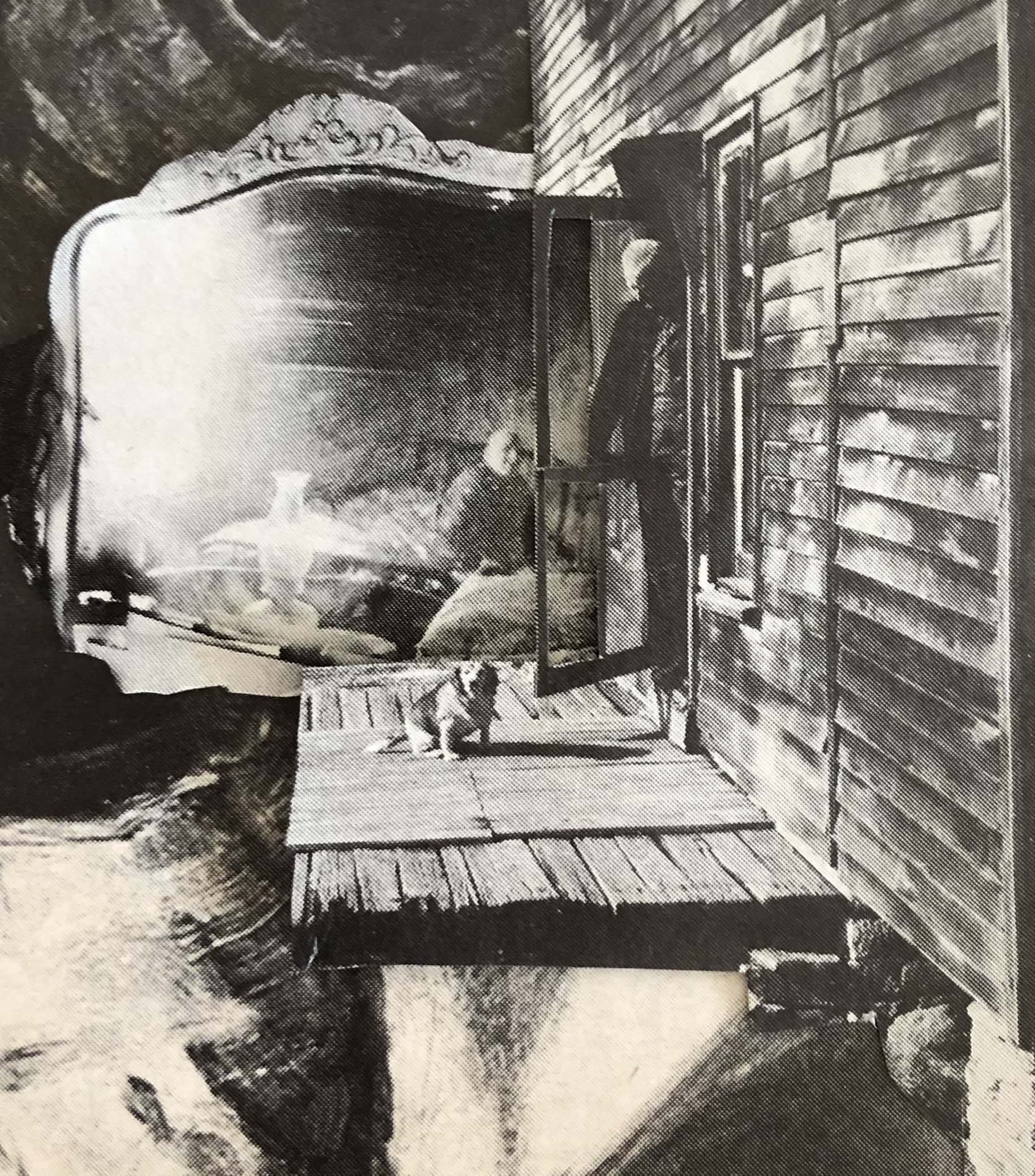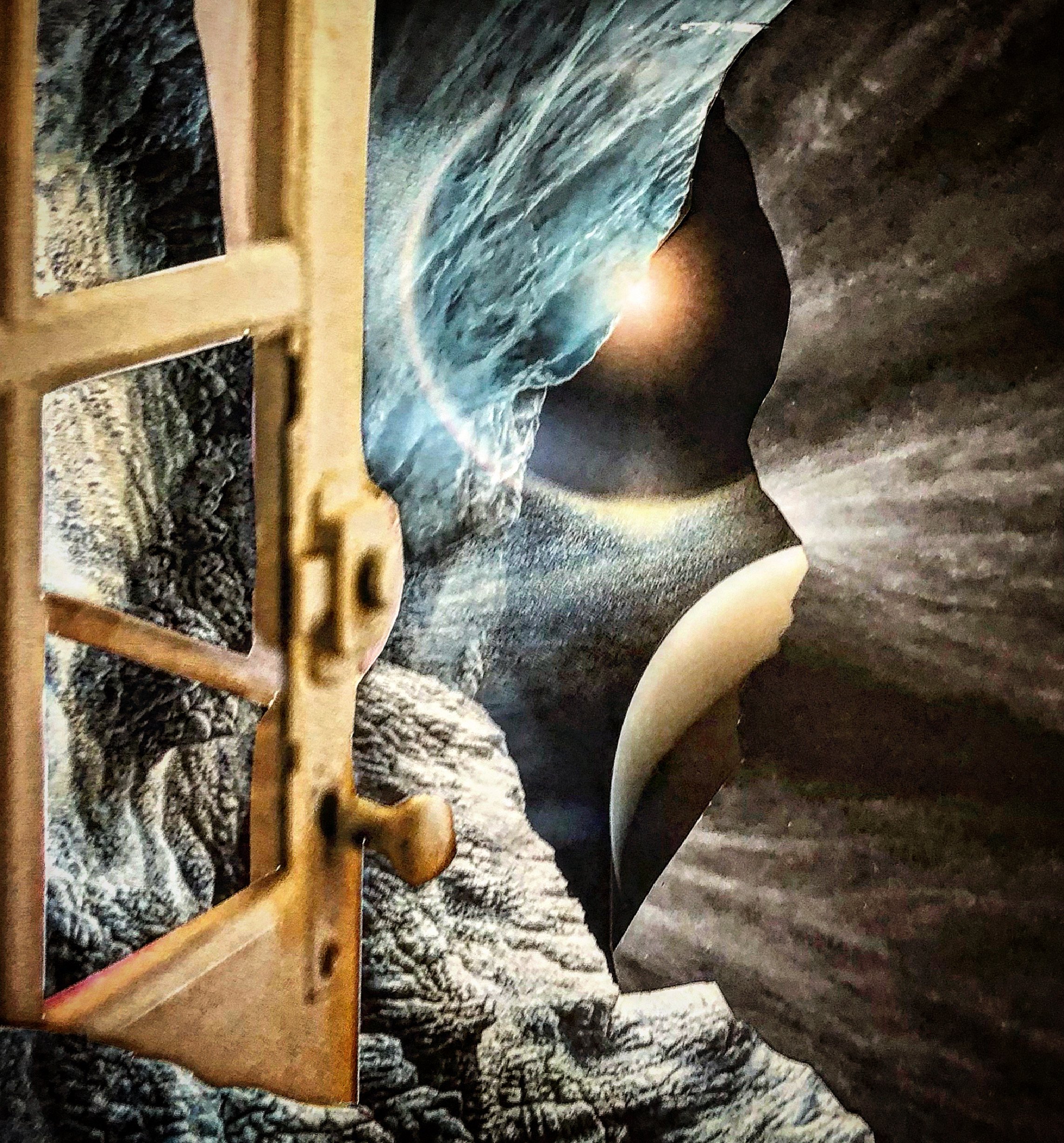BOXES
I sit on the floor, surrounded by empty takeout containers, knowing this will be the last time. Only an air mattress remains in the deserted room. It hisses and sputters, deflating under the weight of our silence.
Sarah says I can keep the Safavieh rug but the gesture of peace feels hollow. The rug was free off Craigslist.
I position myself behind the boxes like an infantryman taking cover. Sarah is there somewhere but all I can see from this vantage point is Muggsy, batting at the noodle dangling from her fork. The snap of a plastic container warns me that she has already moved on to the basil eggplant. Time is running out.
Clumps of dirt and fur roll like tumbleweeds. I wait for Muggsy to chase the dust bunnies but maybe he feels it is too fratricidal knowing most of them are spawned of his fur and dander. Or maybe he is dumb. I will not miss Muggsy, mostly because he is dumb and partially because I am allergic to cats. We didn’t know that when Sarah adopted him but by then it was too late just like it was too late for me to sign a lease to rent the vacant basement unit from that aggressively polyamorous couple at a suspiciously low rate instead.
How the tables could have turned. Maybe I would be leaving now. Not her but someone.
I wonder if they are still renting. Or married.
Sarah says I can take the table. She is saying something else but all I can focus on is the grease on her lips. Had she always intended to betray me? She points out that I had declared the end was near first. Bought one of those prep books. For the LSAT or the GRE or the CIA. I can't remember which. That was at the beginning of the pandemic when time seemed infinite and white people got too comfortable with Instagramming their Dalgona coffee. A ceasefire in the siege of new quarter-age responsibilities: HMO, 401K, LTR, IRA.
Time passed. We got a Nintendo Switch. I forgot why I bought the book in the first place.
I thought Sarah would be relieved. She hated the whole scam. Taking out loans to do something Noble when only an Evil job could pay them off. Instead, it cracked something open in her. I saw the disappointment begin to ooze out in her sighs and refusals to commiserate over my temp jobs. That’s when she knew I was falling behind. In adulthood and sometimes on rent.
Even when I couldn’t pay rent Sarah never judged me for continuing to order Chinese food. It made me happy she didn’t want to break the ritual either. The one we started the weekend we moved in together. The night before we celebrated by drinking bodega bottles of Prosecco and going to the local dive and drinking Tecate combos. We slept until 4pm the next day and by then going to fill our empty fridge seemed unfathomable. The noodles were hot and salty and soaked with possibility.
The night Sarah stopped talking to me I retrieved the LSAT book from under my bed. It was still shiny, untouched like a haunted doll. I sought out our local Buy Nothing group to exorcise it. Seventeen people responded and I knew Sarah saw the post. I threw it in the trash.
When Sarah first told me she was moving out I cut a hole in the toes of all of her socks. Just small ones. Enough of a hole that she would feel something was wrong but not enough for blisters or anything. I thought that maybe she would wait until, eventually, enough of my good ones had mixed in with her laundry and I got all the bad, holey ones.
I don't know if you even need socks to get a master's degree in musical therapy.
Sarah points out that I always complained about the way she never turned the clocks back.
But I said that the way you say that the train is always late or that there are too many rats in our toilet. The rats would never leave me for grad school, at least. If Muggsy hadn't killed them all. Maybe he is not so dumb. Maybe I will miss him.
Sarah says it's "not betrayal" to move on with your life, especially when your pandemic rent deal is ending but I know what an excuse sounds like when I hear one. Like the creak of footsteps on a floor, getting softer and softer until you're not sure if it's a ghost or just your own regret.
The floor is creaking now. I peek around my box fort and see Muggsy, his body hunched, drawn tight like a spring, and ready to pounce.
Sarah slides the dan dan noodles toward me. I add the box to my fort. We will be moving into boxes for the rest of our lives.
Tonya Riley is a journalist and writer working on her debut novel. She lives in Washington, D.C. with her cat.



